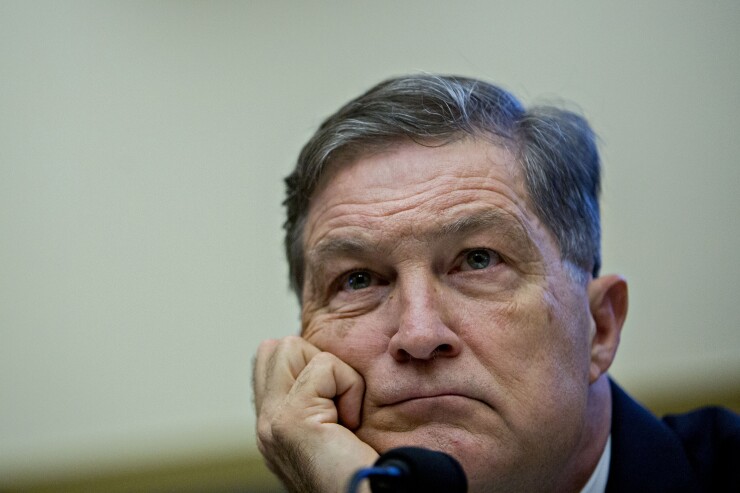Receiving Wide Coverage ...
Loose lips: Jeffrey Lacker, the president of the Federal Reserve Bank of Richmond, resigned suddenly on Tuesday after revealing his involvement in an October 2012 leak of confidential information to a securities analyst. Lacker admitted to speaking to an analyst at Medley Global Advisors, a unit of the Financial Times, the day before it published a report that contained confidential information about Fed policy deliberations. The leak, when it first came to light several years ago, "sparked a criminal investigation, prompted outrage on Capitol Hill and deeply embarrassed the Fed," the Wall Street Journal recalled.

Lacker's resignation, which appears to be unprecedented, "strikes a blow to the Fed's credibility and risks reigniting a long-simmering scandal that has dogged Fed Chairwoman Janet Yellen in her interactions with congressional Republicans," the Journal commented. Lacker had previously announced plans to retire later this year.
Easing regulation: Lacker's resignation overshadows the imminent departure of another Fed official, Daniel Tarullo, the central bank's chief bank supervisor, who is retiring on Wednesday "after eight years during which he assumed a
In a speech at Princeton University on Tuesday, Tarullo said he was open to making "
JPMorgan Chase CEO Jamie Dimon struck a similar theme in his annual letter to the bank's shareholders, "calling for simpler and
"Regulations must be flexible enough to allow banks to act as a bulwark against [market panics], rather than
Not to be outdone, President Trump told a meeting of corporate executives his administration is planning to do a "
Also in his
Sales tactic troubles: The Journal is reporting Wells Fargo has fired "at least two dozen" employees over the past two years in its credit card processing business "after an internal probe found some employees falsely reported customers' sales and pushed small firms into costly contracts they didn't understand."
"The actions, which haven't been previously reported, illustrate how Wells Fargo's
Before this latest issue came to light, an influential advisory group asked the bank's shareholders to vote against four longstanding members of the board's corporate responsibility committee plus another two of the bank's 15 directors in response to the bank's phony accounts scandal. "While giving credit to the actions taken by the board in response to this crisis since the settlement went public," the advisory firm Glass Lewis said, it urged investors to
No room to run?: The
Wall Street Journal
Blockchain for commodities: Commodities traders are
Quotable ...
"I apologize to my colleagues and to the public I have been privileged to serve. I have always strived to maintain the appropriate balance between transparency and confidentiality, but I regret that in this instance





